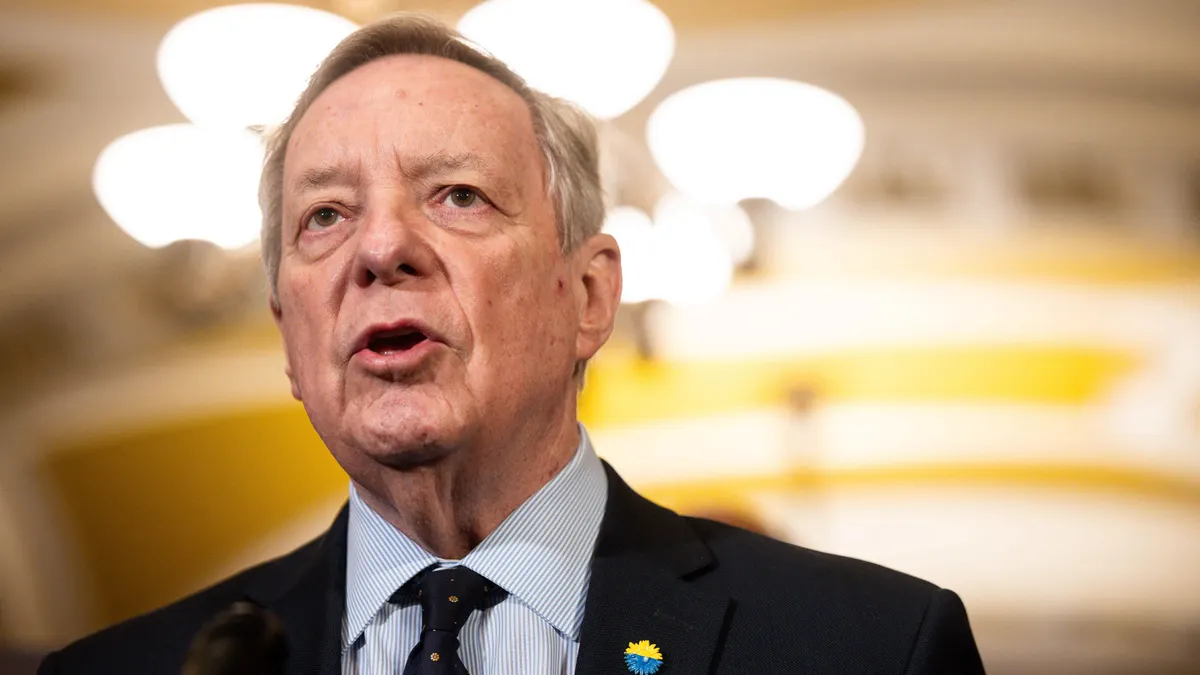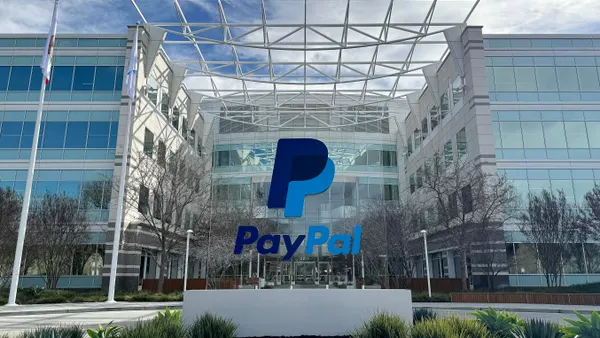Dive Brief:
- Banks and credit unions seeking to block an Illinois law banning interchange fees on taxes and tips are misreading U.S. banking laws, argued the state’s attorney general, a coalition of merchants, and U.S. Senator Richard Durbin in briefs defending the state’s fee law.
- Illinois Attorney General Kwame Raoul filed motions Wednesday opposing the banks’ bid for summary judgment and requesting that U.S. District Judge Virginia Kendall instead grant the AG summary judgment.
- Durbin, who authored the Durbin Amendment to cap debit card fees, filed his second amicus brief in six months Wednesday in a federal lawsuit banks brought last year to block a 2024 Illinois law that bans card interchange fees on the sales tax and gratuity portions of card transactions.
Dive Insight:
The Illinois law is set to take effect July 1 and has inspired multiple other states to pursue interchange fee bans on tips and taxes.
The plaintiffs – four trade associations representing banks and credit unions – sued in August arguing that federal law preempts Illinois’ effort to remove sales tax and gratuities from the transaction amount used to calculate the interchange fee.
In December, Kendall granted a partial injunction of the law for national banks and federal savings associations.
In their lawsuit, filed in Chicago, the groups, including the American Bankers Association and the Illinois Credit Union League, said the new law “would not only throw well-operating payment card systems into chaos, it would also undermine the significant benefits, safety, and security that payment card systems provide to all participants.”
Banks and card networks, such as Visa and Mastercard, say the fees fund investments in payment systems and fraud prevention, but retailers argue that card swipe fees have increased too much and become overly burdensome.
The bank groups filed a motion last month requesting the court grant summary judgment, with opposing briefs due Wednesday.
The plaintiffs argue that federal preemption from the National Bank Act applies to “participants in the intricately interconnected payment system.” In its response, the AG’s office says that position “is hopelessly at odds with the plain language of the statute.”
Durbin, who announced this week that he won’t seek re-election next year, weighed in initially on the litigation with a brief in October arguing that the Illinois law is compatible with the debit-card amendment bearing his name that became part of the 2010 Dodd-Frank Wall Street Reform and Consumer Protection Act.
“The IFPA’s reform is modest and measured; it does not remedy the core structural and anticompetitive defects of the interchange fee system, but it would provide helpful relief for Illinois merchants who paid an estimated $488 million in interchange fees on sales tax in 2023 and would help reduce the inflationary effect that these fees have on the retail prices consumers pay,” Durbin wrote in his latest brief.
The state act “fully aligns with the Durbin Amendment’s text, its structure, and its goal of constraining network-fixed debit interchange fees to reduce excessively high fee rates,” Durbin added.
U.S. businesses paid about $145 billion in fees last year to accept Visa and Mastercard credit and debit cards, according to a March 2025 Nilson Report statistic cited in the merchants’ brief. Merchants and the networks have been involved in separate litigation over these fees since 2005.











